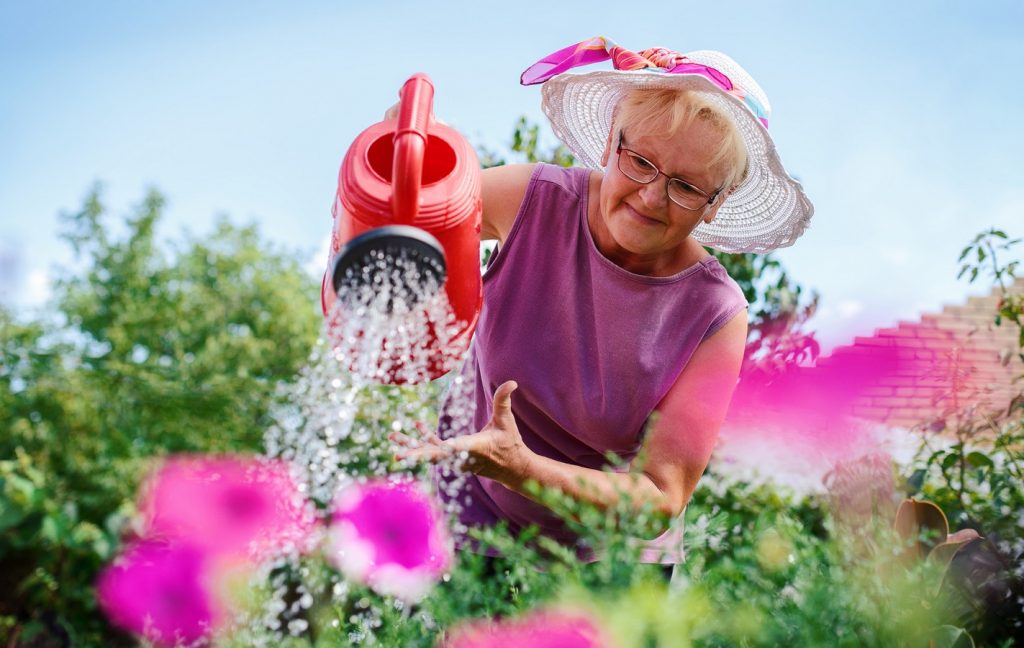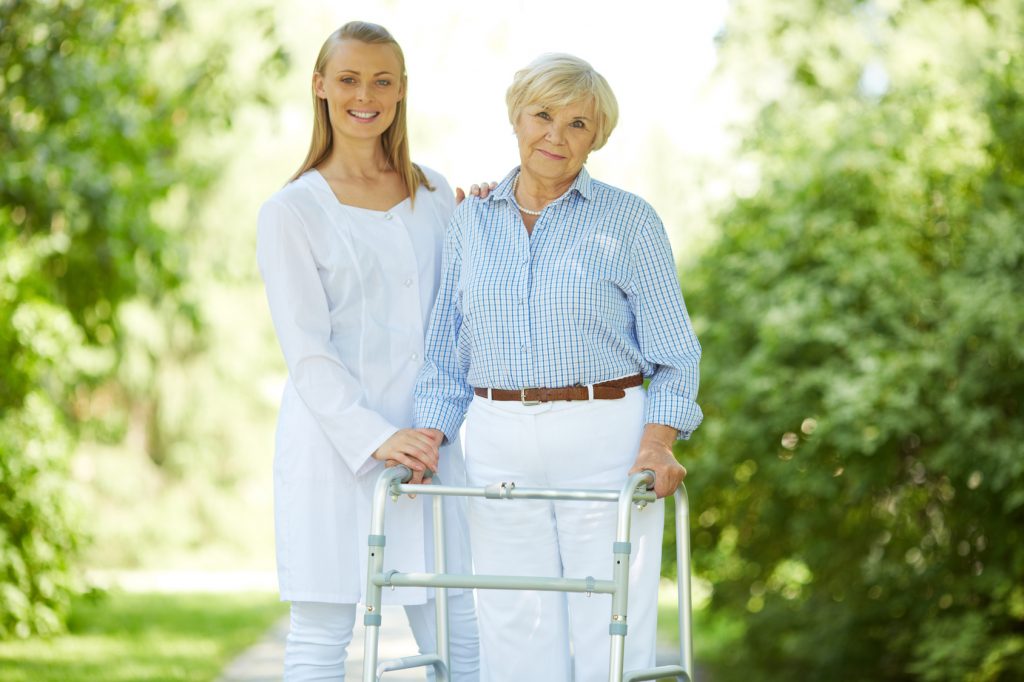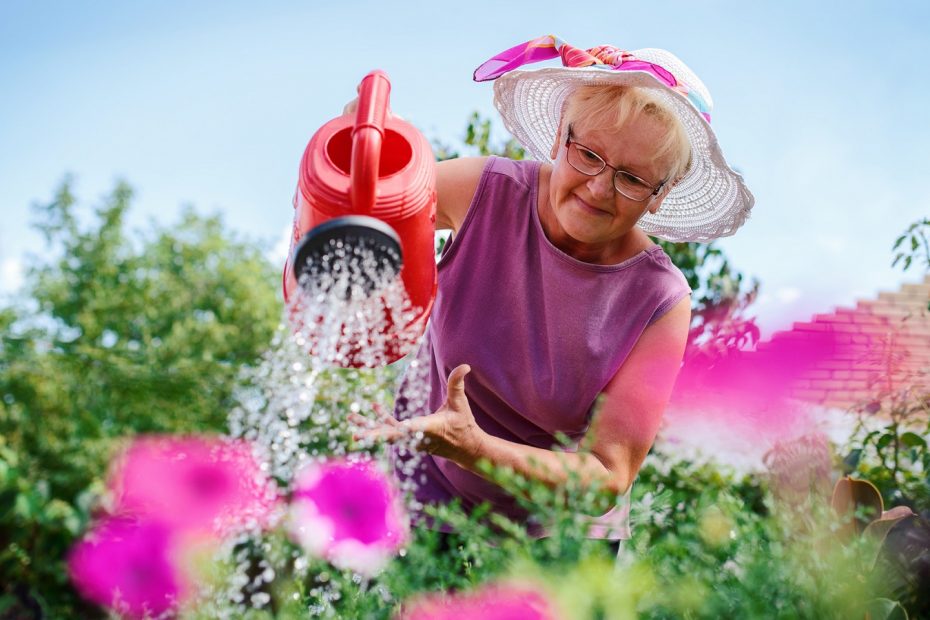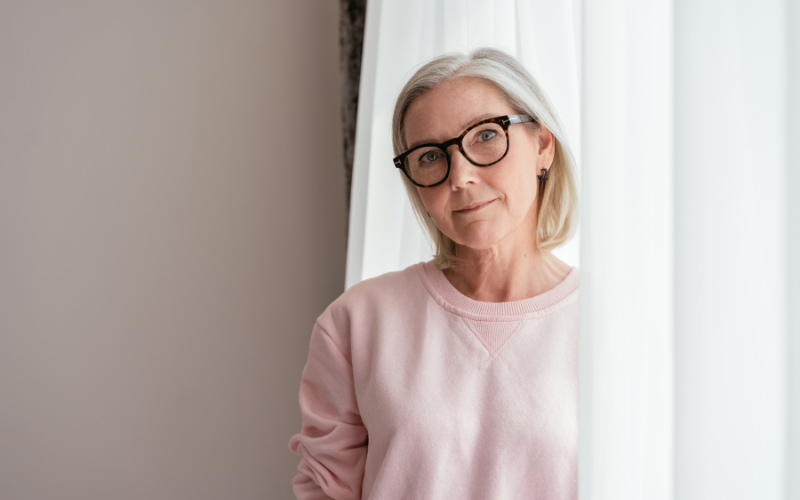
Summer can be a delightful season, filled with sunshine and relaxation. This season is also filled with activities and offers ample opportunities for people to spend some time outdoors. However, rising temperatures can pose significant risks to safety and well-being, particularly for elderly individuals.
Excessive heat and humidity can lead to serious health issues for anyone, but seniors face a heightened risk due to factors such as medications, natural aging, and chronic health conditions. Older adults often struggle to regulate their body temperature effectively through blood circulation and sweat production, making them more vulnerable during extreme heat. Knowing this, elderly individuals need to be aware of the potential dangers that summer weather presents.
The month of August is Summer Sun Safety Month which is observed as a reminder to all people to take the proper steps to stay safe and healthy in the hot summer sun. Use this Summer Sun Safety Month to talk to your elderly loved ones about staying safe in the sun, including what they can do to protect themselves from the heat. Practicing effective sun safety will help your elderly loved ones get more enjoyment out of their summer.
Continue reading to learn more about the potential dangers of the summer heat and to find essential summer safety tips for the elderly.
Common Problems Caused by the Summer Heat
Seniors should always be cautious when out in the sun and protect themselves to avoid problems that can arise from heat exposure. The following are the most common problems seniors can experience when in the summer heat.
1. Dehydration
Dehydration occurs when the body loses more water than it consumes, which can prevent the body from functioning properly. This is particularly concerning for older adults, as their sense of thirst often diminishes with age, making them more likely to become dehydrated.
Seniors who become dehydrated may suffer from headaches, weakness, confusion, dizziness, and fainting. To prevent dehydration, make sure that your elderly loved ones consume plenty of fluids. Encourage them to drink beverages rich in electrolytes as the body loses essential electrolytes when dehydrated, making it crucial to replenish them.
2. Heat Syncope
Heat syncope occurs when elevated temperatures lead to fainting. If you’ve been exposed to the heat, feel excessively warm, and are experiencing dizziness, you may be experiencing heat syncope. In this situation, it’s important to lie down, cool off, and hydrate.
3. Heat Exhaustion
Heat exhaustion is more serious than dehydration, as it also stems from overheating. Typically, an individual suffering from heat exhaustion will have a body temperature ranging from 98.6°F to 104°F.
Symptoms may include a lack of sweating or excessive sweating, paleness, weakness, cold or clammy skin, headaches, nausea, dizziness, and fainting, among others. If you experience heat exhaustion, it is crucial to hydrate and seek a cool, shaded area.
4. Heat Stroke
Heat stroke can occur as a severe consequence of untreated heat exhaustion, marked by a dangerously elevated body temperature. In seniors, this condition may develop gradually over several days. If not addressed swiftly, heat stroke can be fatal.
Signs of heat stroke include a body temperature of at least 104°F, a rapid pulse, nausea, fainting, dizziness, and headaches. While calling 911 isn’t a bad option for any of the aforementioned heat-related problems, it isn’t always necessary. For heat stroke, however, you will want to call 911 right away. If safe and possible, have the affected individual consume water or an electrolyte-based drink and move to a cool place with shade. Remove any heavy clothing from their body, and place cool, soaked cloths on the neck, armpits, wrists, and ankles to help lower their body temperature.
Summer Safety Tips for the Elderly
While seniors must be cautious when going out in the heat, they do not have to let the hot weather ruin their summer plans. Taking the following steps will help seniors stay safe while enjoying summer activities.
1.Maintain a Cool Environment
Even when indoors during the summer, the heat can still make your home uncomfortably warm. To create a cool and comfortable environment, consider turning on the air conditioning if available. If not, use fans to help mitigate the heat. Additionally, keep windows covered during the day to block direct sunlight.
2.Limit Your Time Outside
It is beneficial to step outside for some fresh air and vitamin D from the sun. However, time spent outside should be limited, particularly for seniors during the summer months.
The longer elderly individuals — or anyone, really — remain exposed to the heat, the higher the risk of experiencing heat-related health issues, such as heat exhaustion. Therefore, it is crucial to restrict strenuous activities and work outdoors, as the combination of physical exertion and heat can hinder recovery and pose serious health risks. Seniors should also remember to wear sunscreen while outside to protect their skin from the sun. The sunscreen should have a sun protection factor (SPF) of at least 15.
On days with extreme heat, it is best for seniors to stay indoors. Seniors should also avoid being outside between 10 am and 4 pm when the sun is the hottest.
3.Hydrate Yourself
Given the risk of dehydration on hot summer days, it’s crucial for everyone to stay well-hydrated. Seniors should prioritize drinking plenty of water to maintain their hydration levels. While clear juices can also contribute to hydration, it’s important to avoid alcohol and caffeine. These substances can lead to increased urination, ultimately resulting in greater water loss which makes individuals less hydrated.
4.Wear Appropriate Attire
The clothing choices that people make can affect their body temperature and comfort levels. There’s a reason that during cold and snowy days, people layer up and wear thicker clothing and coats. Likewise, during hot summer days, people should wear light, comfortable clothing that helps keep them cool.
Linen and cotton clothing are excellent choices due to their breathability. It’s wise to wear light colors and steer clear of darker-colored garments, as they tend to absorb heat. Seniors should also consider wearing hats and sunglasses for extra protection from the sun.
5.Understand Medication Side Effects
There are a range of medication types that can make seniors more sensitive to the sun and heat, including certain antibiotics, diuretics, cholesterol medication, retinoids, antifungals, and antihistamines. It is important for seniors and their loved ones to be aware of the potential side effects of their medications and how they can affect them when out in the sun.
If your senior loved ones take medication that makes them more sensitive to the sun, make sure to take extra precautions before going outside. You can talk to their doctor to learn more about the side effects of the medications and the steps you can take to ensure your loved one’s safety.
6.Recognize Early Signs of Heat-Related Illnesses
In the section above, we discussed the signs and symptoms of heat-related conditions such as dehydration, heat syncope, heat exhaustion, and heat stroke. Seniors and their loved ones should be aware of the early signs of these conditions so they can take immediate action and prevent these conditions from worsening.
If you notice any symptoms of heat-related illness such as fatigue, headaches, lethargy, nausea, dizziness, high body temperature, rapid pulse, disorientation, or confusion, get to a cool place and hydrate. Do not hesitate to get medical attention if needed.
7.Check In with Friends and Family
Throughout the summer, seniors should stay in contact with friends and family to ensure their safety. Check in on your senior loved ones regularly and make sure they are taking precautions to stay safe such as staying hydrated, running their air conditioning, and limiting their time in the sun. Encourage them to reach out to family and friends as well and make sure they have a list of emergency phone numbers readily available in case there is a problem that requires immediate help.
Professional Elderly Care from Assisting Hands

If you are concerned about your elderly loved one’s safety this summer, then it is a good idea to seek help from elderly care professionals. Assisting Hands Home Care provides complete elderly care services available in Deerfield, Highland Park, Lake Forest, Lake Zurich, Libertyville, Lincolnshire, Mundelein, Vernon Hills, Round Lake Beach and the neighboring areas.
Our elderly care services include personal care and assistance, such as help with activities of daily living (ADLs) as well as meal preparation, light housekeeping, and errands. We work with families to create a home care plan that meets the unique needs of their senior loved ones so they can live safely and comfortably at home. Our licensed caregivers will not only provide quality care, but also build a personal connection with your loved ones to be their companion. During the summer months, we will ensure that your elderly loved ones take all precautions necessary to stay safe and hydrated in the heat.
Whether your loved ones need care at home care during the day, overnight care, or live-in/ 24-hour home care, Assisting Hands Home Care can help. You can call us at (224) 268-9068 to schedule a consultation.
















